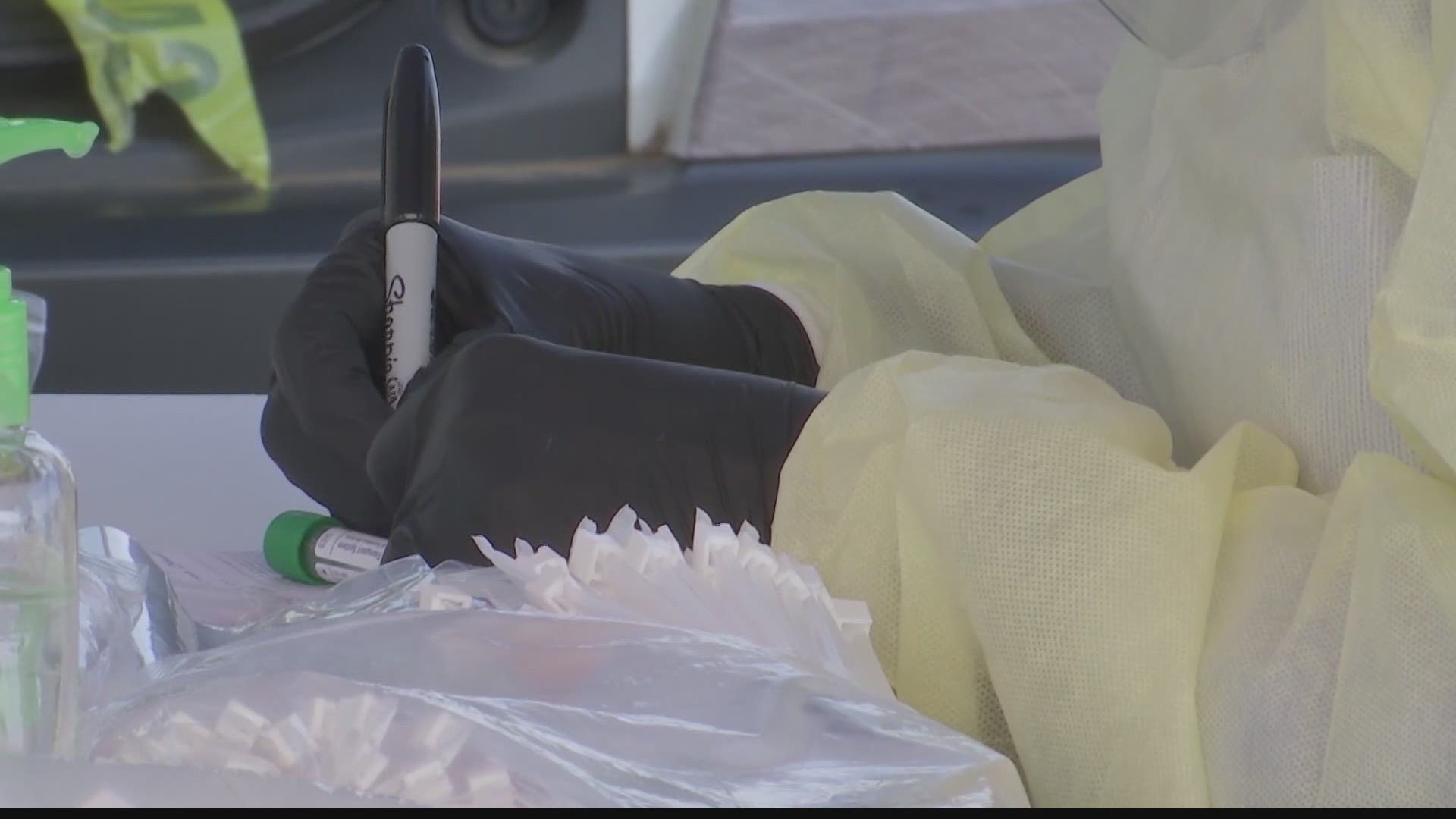MADISON COUNTY, ALABAMA, Ala. — As hospitals treat record numbers of COVID patients, health leaders in North Alabama are hopeful a vaccine will be in their hands by next week.
Right now, half of the patients in some North Alabama hospitals are sick with COVID-19.
During a COVID briefing on Wednesday, Crestwood Medical Center CEO Dr. Pam Hudson said hospitals have enough beds and supplies to take care of these patients. It's staff they need the most. She said 200 health care workers in the Huntsville area are out due to the virus.
"The high community transmission of COVID also strikes health care workers who are exposed just like any of us," Dr. Hudson said.
Some hospitals are delaying or stopping elective surgeries to combat the shortage of hospital staff and increasing hospitalizations.
"We are seeing more people that need to be out because of situations that are occurring either for themselves or for their family. I can assure you your hospitals, HEMSI, all of them reported at 11:30 today during our call, they are experiencing the same thing," Madison Mayor Paul Finley said
Alabama hospitals could be getting COVID vaccines by mid-December.
The Huntsville Hospital System expects to receive 6,825 doses in the first round of distribution.
According to the Huntsville Hospital website, they have over 14,000 employees. That means there will not be enough vaccines in the first round to vaccinate all the health care workers in the system.
Dr. Hudson said they hope the number of vaccines they get will cover the workers at the highest risk.
"When I say highest risk, those would be emergency room physicians. It would be the nurses and staff working right directly with COVID-positive patients," said Dr. Hudson.
Officials say they have the necessary equipment to store vaccines. They expect a steady supply of vaccines to start coming in after the first round.
Dr. Hudson said it may not be until the summer of 2021 until everyone who wants to be vaccinated will be able to get one.
In the meantime, local leaders are encouraging people to wear face masks, stay separate, and sanitize to keep our hospitals from becoming overwhelmed.
If you believe you are high risk and think you want a vaccine, officials say to first do your research. Then, tell your primary care physician you think you are high risk and that you want to be vaccinated. Finally, be ready to get vaccinated when you are called.
"This is a two-dose vaccine. When you get the second dose, you can probably plan for some ickiness in those couple of days afterward," said Dr. Hudson. "That's actually a good sign that your body recognizes that it's had the first dose."
Hospital officials say monoclonal antibody therapy is now being used as an outpatient treatment for people at a high risk for the virus. They believe this new medicine could help cut down on the number of COVID patients who need hospital care.
WATCH: Alabama’s nurses “exhausted” as COVID hospitalizations reach new record high

